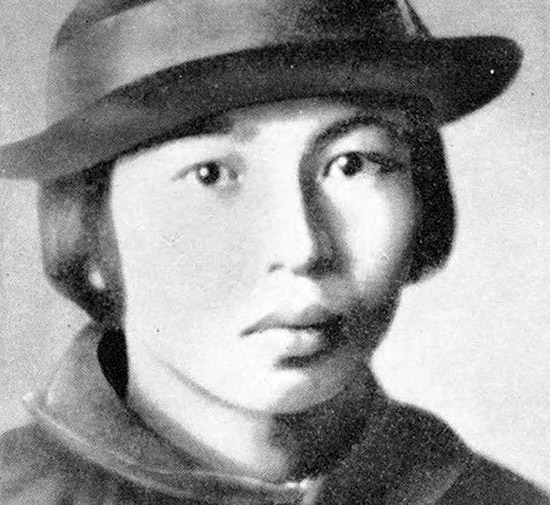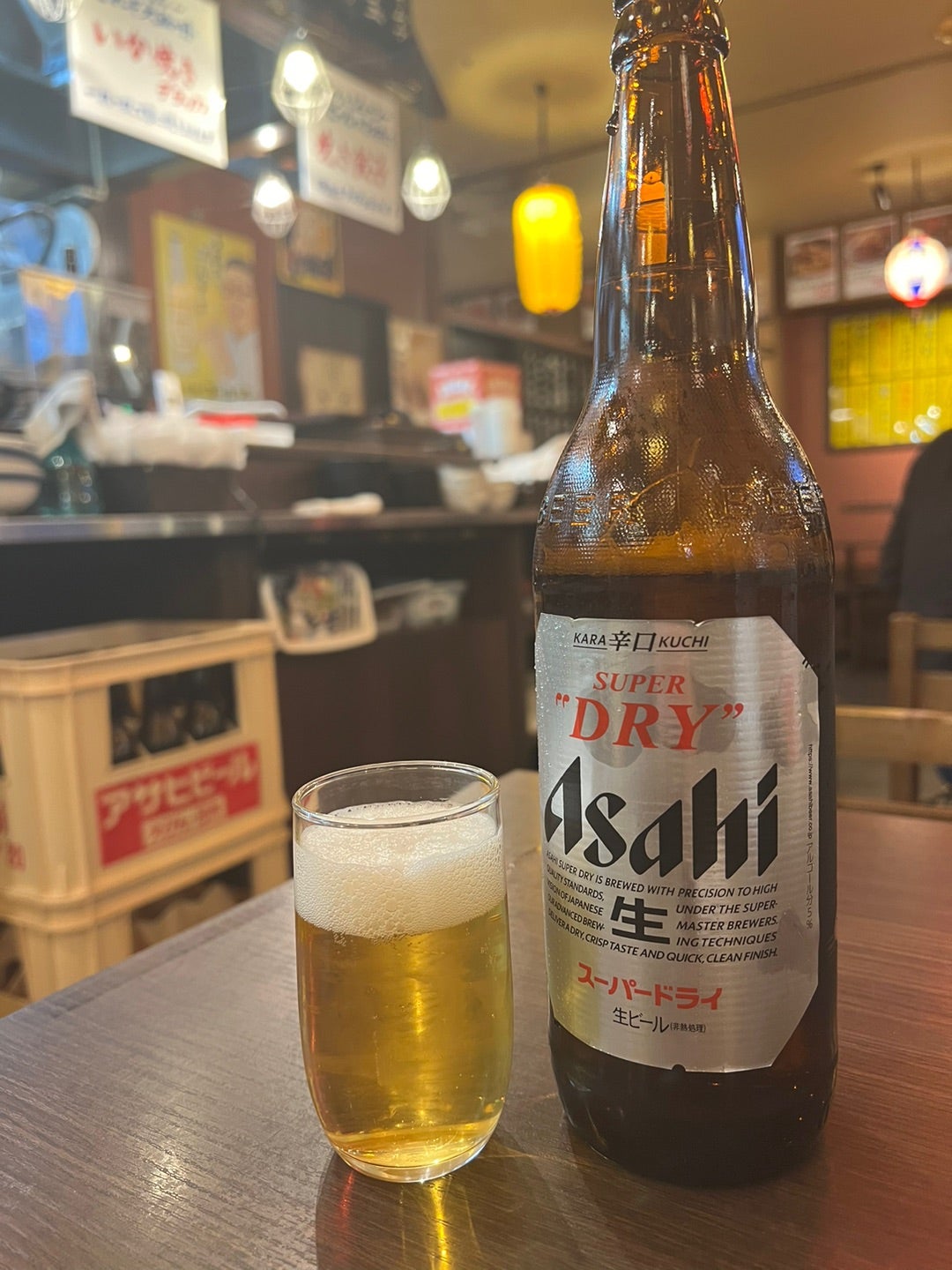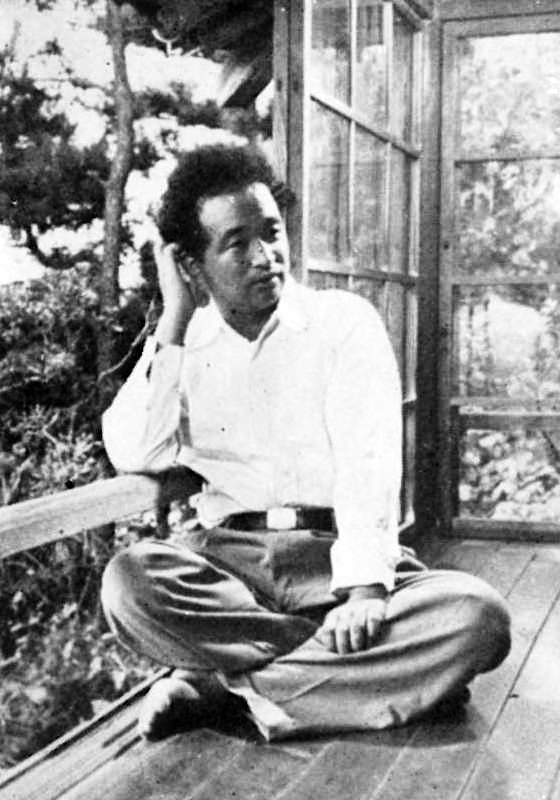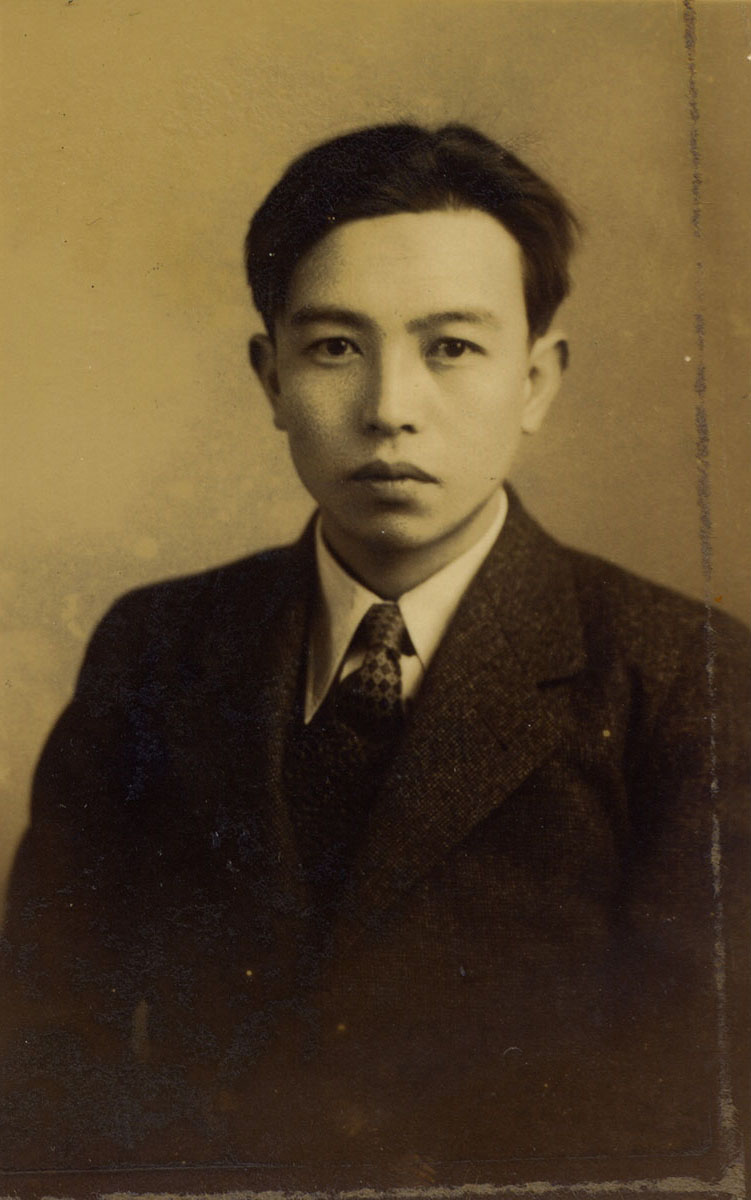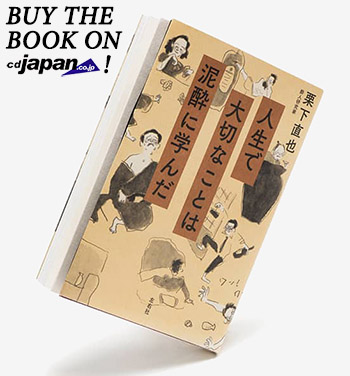Nakahara Chuya
If your coworker tries to hit you with a beer bottle
Poet | 29 April 1907 – 22 October 1937
The Heisei era, which began on January 8th, 1989, has now ended.
One doesn’t often stop to really think about it, but the fact is that we have literally just run past an era in time. The Lost Decades, the Aum Shinrikyo Incidents, the Great East Japan Earthquake… These phenomenon of the past thirty years shook people’s sense of values, and they changed the way in which we live our lives.
Meanwhile, in the world of sports, perhaps one of the more significant incidents during the final Heisei years was sumo grand champion Harumafuji’s alleged beer bottle assault and his subsequent retirement.
While there is no excuse for violence under any circumstances, really the main reason why this incident in particular attracted so much attention may have been because of how shocking the initial reports were.
In November 2017, as the Kyushu Sumo Tournament was underway, Sports Nippon reported that Harumafuji had injured Takanoiwa by striking him with a beer bottle. Later, there were discrepancies between testimonies given by the people involved. Some said Harumafuji had done the striking barehanded, others said it was with a karaoke machine remote control, and some said he did have a beer bottle in hand but did not actually strike anyone with it. Some were claiming Harumafuji was not even the “principal offender.”
Be that as it may, even just the fact that he had become violent, and that people now imagined him with a beer bottle in hand—regardless of whether or not he had actually hit anyone with it—meant he was left with nowhere to turn.
A sumo wrestler with a beer bottle is like a monkey with a loaded gun. There’s no way it’s not scary. Indeed, as some experts have pointed out, had he just lightly punched the other guy by hand instead of specifically hitting him with a beer bottle of all things, his punishment might have been of lesser severity.
That just goes to show you the impact of the “beer bottle.”
Think about it. Go to any ordinary party where drinks are involved, and typically you won’t find anything there that’s heavier and easier to hold. In other words, it has great practicality and offensive capability.
A big sake bottle is too heavy to brandish, while a whisky bottle is awkward to hold up. Even just picturing someone trying to use a sake bottle like that, it’s a bit of a silly-looking mental image. It feels like once you were to raise that thing overhead, the other party would just dodge out of the way. In comparison, just the act of grabbing a beer bottle even while not actually hitting anyone with it, that alone would look intimidating to your opponent.
When all is said and done, a beer bottle is not something you should be picking up if your heart’s not in it.
While some reports have mentioned that Harumafuji became enraged because Takanoiwa made a quip along the lines of “your time’s over, old man!,” it’s still not an item you ought to be picking up casually, not even if someone disparages or makes fun of you. The mere act of doing so will silence everyone at the party, and the other person will be terrified.
To pick up a beer bottle signifies that one is ready for conflict. It is the last remaining viable option.
One time, in the early years of the Showa era (1926–1989), there was a certain eminent figure who just “happened” to grab a beer bottle, thereby throwing the party into chaos. This man’s name was Nakahara Chuya.
Nakahara was a poet, famous for his poem that begins with the line, “Upon the sadness all smeared up.” In his private life, fighting over women with Kobayashi Hideo and losing his child early on led to his psychological deterioration, causing him to die from illness at the age of 30.
When a person dies young, we tend not to speak much about what they were like when they were boozed-up. But man, I tell you, Nakahara could be one troublesome drunk. He was what we would today call an absolute pain in the neck.
After he’d made your acquaintance once, he would continue coming over to your house every night and invite you to go out drinking with him, despite being penniless himself. He was the source of major headaches for people like Dazai Osamu, Dan Kazuo, and most others in the literary circles at the time. Even Kobayashi Hideo—well-known for his own drunken entanglements—was at his wits’ end with this guy.
In the case of Oka Shohei, after he graduated from higher school in Tokyo, he then went to Kyoto Imperial College (now: Kyoto University) only just to get away from Nakahara.
It was through his private tutor, Kobayashi, that he first became acquainted with Nakahara. But when Kobayashi and Nakahara became embroiled in a love triangle, the latter suddenly started showing up drunk at Oka’s house every night. Oka, who felt that he couldn’t bear it anymore, fled to Kyoto.
But because Oka’s motive in going to study there had only been to get away from Nakahara, he started to miss Tokyo. And so, after his enrollment, he wound up coming and going between the two cities which ultimately led to him flunking out of school. Enlisting in the army, after his training period he lost his qualifications for taking the Cadet Officer Examination, and this led to him seeing battle as an infantryman in the Philippines.
In other words: were it not for Nakahara’s drunken involvement, we may have never gotten Oka Shohei’s war literature.
Nakahara was literally changing people’s lives because of his drunken antics. However, helped in part by his premature death, when you see pictures of him in textbooks you will be presented with a very delicate sort of image. Surely this isn’t a man you would ever see swinging beer bottles around. Or so you would think.
But according to Arashiyama Kozaburo’s book Bunjin Akujiki, the pictures of this beautiful boy were reproduced and retouched, and the real Nakahara looked nothing like these images. According to those who knew him at the time, he had the face of a wrinkled, middle-aged man.
But as for that whole business with the beer bottle…
In Ima wa Mukashi: Aru Bungakuteki Kaiso, critic Nakamura Mitsuo writes as follows.
Despite having a disdain for critics, he took quite well to my writings. Whenever we were having drinks by the two of us, he would always be extremely timid and kindhearted in my presence. […] But when it was with a large group of other drinkers, his manner of drunkenness would be something different entirely. […] He would instantly turn into an out-of-control, spoiled child of a tyrant, always demanding to be the center of everyone’s attention.
I would primarily meet with him at the apartment of Mr. Aoyama Jiro. Each time I did, I always had to mentally prepare myself. “This is going to be a difficult night.”
Now, now. Just how “difficult” could a night of drinking be?
Well… Quite difficult, as it turns out.
One time, Mr. Nakahara said, “I’ll fucking kill you!,” and he hit me in the head with a beer bottle.
So Nakamura was the victim. Sure, Nakahara may have been his senior, but hitting a critic on the head—their “tool of trade”—that’s just too much. To claim that it was merely “tough love” isn’t going to cut it.
But it’s what happened right after that really makes one’s jaw drop.
I was drunk myself, and so I just acted like nothing had happened. But Mr. Aoyama, with an unusually serious look on his face, turned to Mr. Nakahara and began angrily yelling at him.
“If your intention was to kill him, then why did you not hit him with the rim of the bottle?! You hit him with the side! You’re a coward!”
In the era of writers keeping true to their word, if you didn’t kill someone when you said you were going to, that was considered cowardice. It would be like if there was a sumo wrestler who became violent and the Japan Sumo Association reprimanded him because of they found his “tough love” to be insufficient. You can imagine how it might be troubling if you were told by the association to “hit them harder!”
For Nakamura—now caught in this strange cross-examination—it was troubling.
With the beer bottle still in his now-lowered right hand, Mr. Nakahara stared at us for a moment. Finally, he yelled out, “I am sad!,” and he burst into tears.
Was this the aforementioned “sadness all smeared up,” I wonder? Maybe not. But while you might think that, if anyone, it was the other people in the room who felt sad, Nakamura writes: “In that moment, I truly understood Mr. Nakahara’s sadness. I did not bear even the smallest of grudges against him.”
In the sumo assault case, when it was reported that the people involved had all made up afterwards, everyone throughout the nation was instantly going, “No way in hell they did!” But perhaps the fact of the matter is that some people just don’t endlessly dwell on things like being assaulted with a beer bottle, especially if there was no injury.
But despite what Nakamura wrote above, he still gave us a more rational perspective when he later reflected upon this event.
We then all decided to start drinking again. Looking back, it was an absolutely crazy thing to do.
Indeed it was. Even if he himself was nonchalant about it, the mood in the air surely changes when someone hits another person with a beer bottle. And meanwhile you had Nakahara, who had for some reason now started crying even though he was himself the perpetrator. There was no helping this guy.
By the way, as shown by how he took Aoyama’s stern advice to heart, Nakahara was always obedient towards his elders. He was simply a big child, completely lacking in common sense.
Nakahara was close with Kobayashi Hideo and Kawakami Tetsutaro, and they were all regulars at Windsor, a Western liquor bar out in Nihonbashi. Sakaguchi Ango was also friends with them, and he was a frequent guest as well.
Sakaguchi and the barmaid there were close. Nakahara—who had secret feelings for the girl—did not like it one bit. And so, one night, he picked a fight with Sakaguchi.
This is a bit long, but the following story is emblematic of just how childish Nakahara could be, so please allow me to quote it.
Shouting, “Hey, big shot!,” he suddenly stood up from his seat and tried to punch me. But since he was so small, measuring just over 140cm, and since I am myself so large in stature, he was afraid to get too close. And so, from about a meter away, he started showing off with his footwork and throwing straight lefts and rights, at times also mixing in some swings and uppercuts.
Needless to say, I started laughing hysterically. After about five minutes of fighting by himself, Chuya just sat down again all of a sudden. So I said, “Hey, wanna drink together? Why not come over here?” While simultaneously muttering on about how much of a “big shot” and a “downright bastard” I was, he squeezed himself next to me, and from then on we became close friends, and we would visit each other often.
(“Sake no Atosaki”)
Surely this story is the perfect encapsulation of Nakahara’s immaturity and cowardice.
But these “kiss up, kick down” types of people are no laughing matter. Even less so when they’re adults.
Because the Harumafuji incident happened to take place in November, I expected the end-of-year-parties that year to see an uptick in all the old men showing off a certain new “party trick.” And sure enough, all over the place one could witness old-timers half-jokingly jostling young people with beer bottles in hand, going, “Hey now, don’t go thinking my time’s over yet…!”
“Not at all!,” the youngsters being jostled would say, as they sidestepped out of the way. But surely that subtle change in the air would cause stiffness in the faces of many of those geezers. And what would they have done if someone didn’t dodge out of the way; if someone had instead said, “Okay, go ahead and hit me then.” That particular old guy probably would’ve had no idea what to do with that beer bottle they were holding up overhead.
I’m ashamed to say that that old guy was me.
While it is of course entirely my own fault, I can now say that I understand how Nakahara Chuya felt all those years ago.
I am sad.
